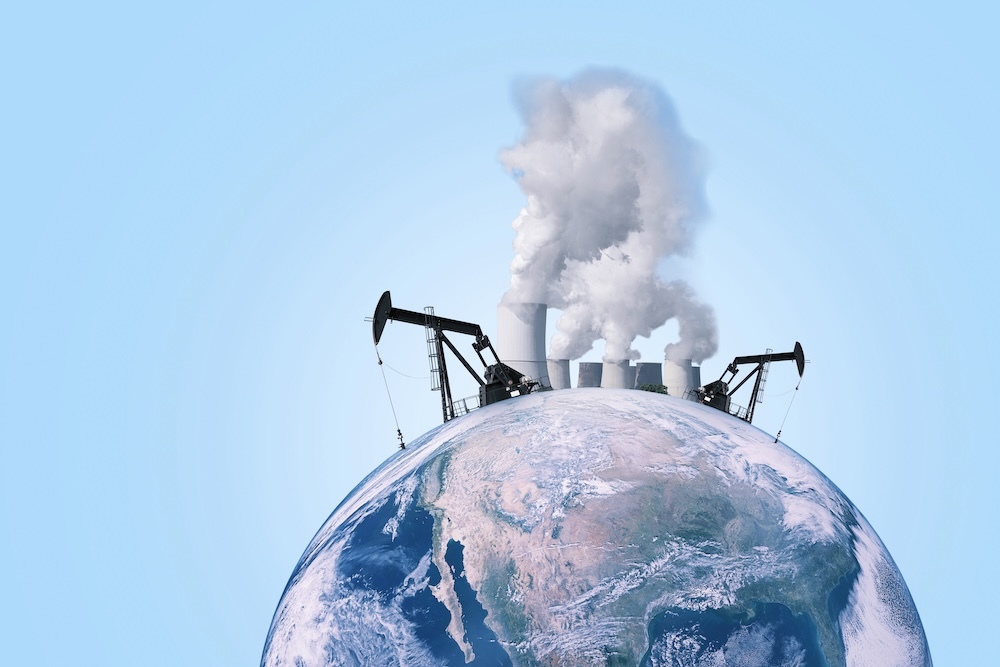Every gallon of gasoline, every ton of coal, every cubic foot of natural gas burned comes with a hidden invoice — one paid not in dollars, but in rising seas, poisoned air, and lost lives. Fossil fuels powered industrial revolutions, but they’re also powering the climate crisis. Understanding their true cost is no longer optional.
What Are Fossil Fuels and Why They Matter
Fossil fuels are formed from ancient plants and animals buried millions of years ago, compressed into coal, oil, and natural gas. They are non-renewable, meaning once they’re gone, they’re gone for good.
When burned, they release carbon dioxide (CO₂) and other greenhouse gases. The combustion of fossil fuels remains the single largest source of CO₂ emissions worldwide, responsible for roughly 75% of global emissions, according to the Intergovernmental Panel on Climate Change (IPCC).
The result: climate disruption, polluted air and water, and a cascade of public health crises.
Climate Change: The Carbon Burden
Fossil Fuels and Global Warming
The greenhouse effect is no longer a theory — it’s an accelerating reality. Burning coal, oil, and gas traps heat in the atmosphere, raising global temperatures at unprecedented rates.
Coal plants alone account for about 40% of CO₂ emissions from energy use. The result is a hotter, less stable planet.
The Fallout of Climate Change
Rising sea levels threaten coastal cities. Heatwaves and droughts cripple food systems. More intense hurricanes and wildfires devastate communities. Species extinction accelerates as ecosystems collapse.
What started as an energy solution is now destabilizing the very systems that sustain life.
Air Pollution: Breathing the Cost
Pollutants Beyond CO₂
Fossil fuel combustion also releases sulfur dioxide (SO₂), nitrogen oxides (NOx), and particulate matter (PM2.5). These contribute to smog, acid rain, and respiratory illness.
Coal plants remain one of the dirtiest culprits, emitting toxins that linger in the air and settle into ecosystems.
Human Health Consequences
Air pollution linked to fossil fuel use kills millions prematurely each year. PM2.5 particles penetrate deep into lungs, fueling asthma, heart disease, and strokes. Vulnerable groups — children, the elderly, and those with pre-existing conditions — pay the steepest price.
The World Health Organization estimates that air pollution causes over 7 million premature deaths annually. Fossil fuels are a leading driver.
Water Pollution: Contamination and Scarcity
Extraction and Spills
The drilling, fracking, and transport of fossil fuels wreak havoc on water systems. Fracking chemicals seep into groundwater. Oil spills destroy marine ecosystems and devastate fisheries. Methane leaks contaminate aquifers.
Resource Depletion
Extracting fossil fuels requires vast amounts of water. In drought-stricken regions, this intensifies scarcity and fuels conflict over limited resources. Contamination also undermines drinking water safety for millions.
The Push for Sustainable Alternatives
Benefits of Transitioning
Moving away from fossil fuels means cleaner air, safer water, and a fighting chance at stabilizing the climate. Renewable energy sources like wind, solar, and hydropower generate electricity without toxic byproducts or greenhouse gases.
They also create jobs. The International Renewable Energy Agency reports that renewable energy employment reached over 13 million jobs globally in 2022 — and is projected to keep growing.
Corporate Examples
- Google: Achieved carbon neutrality in 2020 and is committed to running entirely on 24/7 carbon-free energy by 2030.
- Ørsted: Once reliant on fossil fuels, it now sources over 90% of its energy from renewables and is on track to be carbon neutral by 2025.
These transitions show that shifting to renewables isn’t just possible — it’s profitable.
Solutions to Minimize Fossil Fuel Damage
Shifting to Sustainable Energy
Governments can phase out subsidies for fossil fuels and instead incentivize renewables. Investment in research, grid modernization, and storage technology can accelerate adoption.
Industry Initiatives
- Shell: Investing in carbon capture and storage (CCS), such as its Quest project in Canada, capturing over one million tons of CO₂ annually.
- Schneider Electric: Pioneering energy efficiency programs that reduce emissions and help other companies decarbonize.
But here’s the reality: CCS and efficiency are band-aids. The long-term solution is systemic — replacing fossil fuels entirely with renewables.
Final Thoughts
The environmental impact of fossil fuels isn’t a distant problem. It’s here, shaping every wildfire, every heatwave, every flood. Fossil fuels may have powered progress, but now they’re undermining survival.
The good news? Alternatives exist. From wind farms to solar grids to global efficiency gains, we have the tools to transition. What’s missing is the political courage and corporate accountability to move faster.
If humanity doesn’t wean itself off fossil fuels soon, the invoice we leave for future generations will be one they cannot afford to pay.








